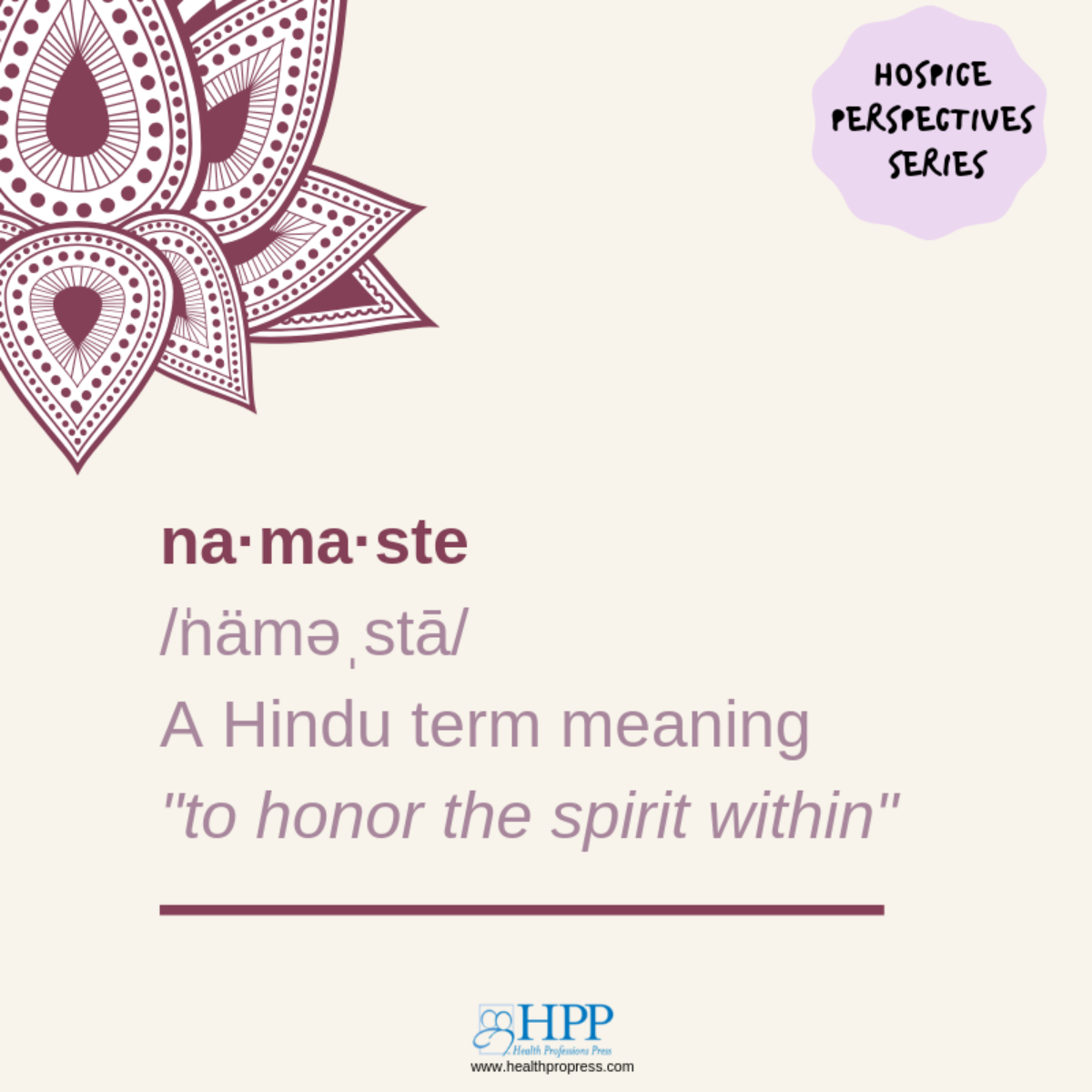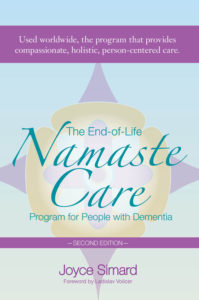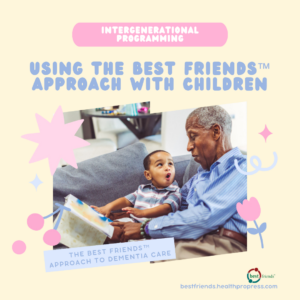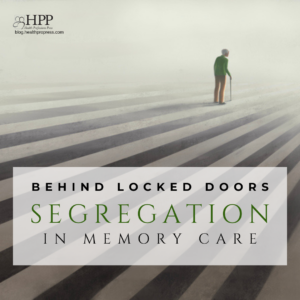
Matthew’s Last Days
November is National Hospice and Palliative Care Month, and HPP will be joining organizations across the nation to raise awareness for hospice and demonstrate its importance. In our Hospice Perspectives Series, people share their stories of hospice care. While these stories do feature death, they also feature profound hope, compassion, comfort, and joy. They will touch your heart and provide invaluable insight into palliative care and the end of life.
This story is written by Joyce Simard, social worker, internationally recognized speaker, author, and creator of the Namaste Care™ program.
Life has a way of leading you down the road less traveled
We never know how our lives will be shaped by events that initially seem insignificant but are actually profound turning points. My first interview for a social work position took place in Ithaca, New York, in 1978. Walking into a very old nursing facility, formerly a rehabilitation center for children with polio, I thought something like, “This is not for me; this will have to be a temporary position.” All of the residents looked so old and disabled and sad. As my peers rated social work jobs, the nursing home was not high on the list of sought-after positions. But as I have learned, sometimes the hard way, life has a way of leading you down the road less traveled.
As part of my interview, the administrator gave me a tour of the building. We walked around the first floor, when residents were being gathered for lunch. I was asked to help transport residents into the dining room; of course, I readily agreed. My first efforts to move a wheelchair did not work—no one told me that wheelchairs have breaks! Needless to say, this new social worker had a lot to learn.
In spite of my ineptness, I was hired and began a career that would turn out to be my life’s work, my mission, and my joy.
It was not until 1979 that my interest in residents with dementia surfaced.
The Namaste Care program
I developed the Namaste Care program to bring an improved quality of life to nursing facility residents in the last stages of Alzheimer’s. Namaste (pronounced nah-ma-stā) is a Hindu term meaning “to honor the spirit within,” a perfect name, I thought, for a program designed to acknowledge the person first, not the disease, and to honor the person in all aspects of his or her life.
The Namaste Care program also removes the isolation surrounding many residents in health care settings and invites them to be in the presence of others in a place that is peaceful and filled with soft music, with the feeling of love surrounding them.
Matthew’s Story
Matthew was part of Namaste Care for several months before he died. I had seen the pleasure on his face when he was placed in a comfortable lounge chair and offered orange slices and lollipops. He was in the presence of other residents who were also in the last stages of dementia-related illnesses, not isolated in his room or asleep. He spent the majority of the day with caring Namaste Care team members, in a room filled with beautiful music and the scent of lavender drifting through the air. Namaste Care team members offered Matthew a variety of meaningful activities, such as receiving hand and foot massages, listening to the sounds of nature, and hearing gentle conversations. Matthew spent the last months of his life in this comforting place with his wife, Celia, often at his side.
Matthew Wilk died on July 12, 2004. Matthew was a husband to Celia for 56 years, a father of five, a retired transformer specialist for General Electric for 35 years, and a person who had lived with dementia for 6 years.
Because of his participation in the Namaste Care program, Matthew’s last weeks could have been sad; they were not. Matthew’s last days could have been heartbreaking; they were not. Matthew’s last hours could have been distressing; they were not. Matthew’s death could have been devastating; it was not. Matthew left this world with dignity, love, and compassionate care and on the wings of laughter.
The lessons in the stories we tell
Several months after Matthew’s death, his wife, Celia, and I were sitting in the private room reserved for Namaste Care residents. This was the room where Matthew spent his last days, where he died. She looked around the room and gave a rueful smile at what had transpired in the room, the place where her wonderful husband died, recognizing what a beautiful passing it was. We realized that the passing of Matthew had made a difference in both our lives. For Celia, it was the end of a journey for her husband, who had struggled with dementia for so many years. For me, it was being present during his death and seeing how the Namaste Care program had taken on a life of its own and blossomed in ways I never anticipated. Namaste Care could really make a difference in the way people with advanced dementia lived their last days and how they died. I needed to tell its story. Just as storytellers have taught lessons of life for thousands of years.
Portions of this post were excerpted from The End-of-Life Namaste Care Program for People with Dementia, Second Edition by Joyce Simard, M.S.W. Copyright © 2013 by Health Professions Press, Inc. All rights reserved.
Read the book!
 The End-of-Life Namaste Care Program for People with Dementia
The End-of-Life Namaste Care Program for People with Dementia
Second Edition
By Joyce Simard, M.S.W.
Copyright © 2013 by Health Professions Press, Inc. All rights reserved.
Bring compassion and comfort to your end-of-life care with the internationally acclaimed Namaste Care™ program.





Add comment